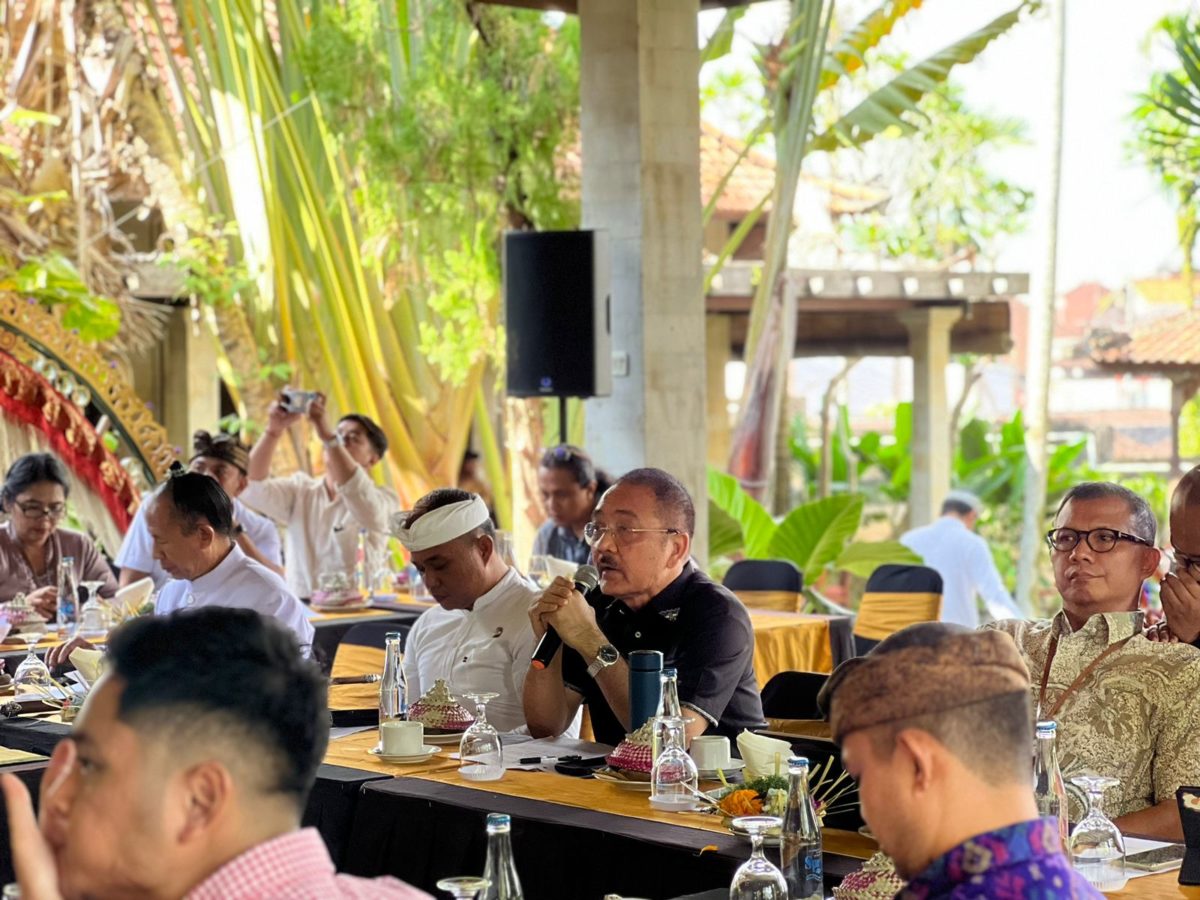Ubud, Bali – The picturesque town of Ubud, nestled in the heart of Bali, is gearing up to revolutionize the world of culinary tourism. With meticulous planning and unwavering determination, Ubud is set to establish itself as a global gastronomic destination that will captivate the taste buds of food enthusiasts from around the world.
According to Helson Siagian, the Senior Advisor of the Executive Office of the President (KSP), Ubud has undergone an intensive development process to ensure its readiness for this remarkable transformation. From comprehensive analysis and diagnosis to the meticulous formulation of technical designs and business plans, every aspect has been meticulously addressed.
“Two crucial phases of the development process have already been completed, leaving only the final phase of business plan implementation. Our target is to complete this phase by September,” Helson stated during the Kick-off Meeting for the Follow-up of the Pilot Project for the Development of Ubud as a Gastronomy Destination by the United Nations World Tourism Organization (UNWTO), Friday (23/6).
The meeting, attended by key stakeholders such as the Presidential Staff Office, Gianyar Regency Government, Indonesia Gastronomy Network, academics from Udayana University, and local gastronomy tourism industry players, underscored the strategic significance of Ubud’s development as a world-class culinary destination. President Joko Widodo’s vision of showcasing Indonesia’s culinary excellence and rich spices to the world resonated throughout the discussions.
Helson stressed three fundamental elements to optimize the program’s success. Firstly, meticulous planning with clear and measurable targets is of utmost importance. Secondly, the establishment of a destination management organization (DMO) will facilitate effective coordination among all stakeholders. Lastly, the significance of robust public communication campaigns cannot be understated.
Highlighting the essence of Ubud’s transformation, Helson emphasized that gastronomy should become the primary motivation for tourists to embark on a journey to this captivating town. With its rich culinary heritage and the vibrant lifestyle it has engendered among the local community, Ubud offers a tantalizing blend of cultural immersion and culinary exploration.
Optimism prevails as strong collaboration between the government and stakeholders, encompassing all segments of society, paves the way for Ubud’s rapid transformation into a world-class gastronomy destination. The anticipated benefits include a manifold increase in the welfare of the local community and the creation of new avenues for economic growth.
Looking ahead, Ubud’s success in establishing itself as a gastronomy tourism hub is expected to inspire other regions, particularly the five Super Priority Tourism Destinations (SPTD) in Indonesia: Lake Toba, Borobudur, Mandalika, Labuan Bajo, and Likupang.
“The presence of the Executive Office of the President (KSP) provides resolute support in achieving these ambitious goals”, Helson Said.
The collaboration between the United Nations World Tourism Organization (UNWTO) and the Indonesian Government since 2018 has been instrumental in paving the way for Ubud’s gastronomy transformation. The UNWTO’s valuable insights have provided a blueprint for Ubud’s journey towards becoming a global gastronomy destination.
Gastronomy tourism, with its holistic approach to food exploration encompassing everything from preparation and ingredient selection to cooking techniques, presentation, aesthetics, and quality, is set to redefine Ubud’s identity on the world stage.
Ubud’s selection as the destination for this gastronomy venture is no coincidence. The town’s stakeholders are primed and highly collaborative, and food has become an integral part of the local lifestyle. This is evident in Ubud’s historical heritage, exemplified by the Yeh Pulu relief, which narrates the agricultural, farming, and hunting traditions that have shaped the local gastronomy culture since the 14th century AD.
